Internal DNS, or a private DNS within a organizational network helps in resolving domain names for its internally published services. Unlike public DNS, which handles internet wide queries, internal DNS is used for organization private purpose only. This separation between private and public DNS is important and has its own advantages. Lets discuss the workings of internal DNS. It’s importance in corporate network, and how it improves security and overall performance.

How Private DNS Server Works
The main function of private DNS is to resolve domain names within an organization’s network. Only local users use private DNS server. When a user try to access a internal network resource. Your device sends a request to the local DNS server. The DNS then looks up the domain name in its zone file and responds with the correct IP address. As a result your device gets connected with local service. Lets understand it with following example,
Lets say you want to access an internal website called “internalsite.yourdomain.com.” Instead of your request going out to the public DNS servers on the internet, it goes to local DNS. The server quickly checks its zone file finds the IP address and return it back to the requester. This directs your device browser to the connect local webserver IP without ever communicating with external DNS or internet.
Benefits of Local DNS Server
Enhanced Security
One of the advantages of having private DNS is enhanced security. Since all DNS queries and responses are handled internally and internet is not used. There is a lower risk of exposure to external threats. Public DNS can sometimes be manipulated by hackers. This leads to potential security breaches. With private DNS, these risks are significantly minimized.
Private DNS also supports security features such as DNS filtering and monitoring. Administrators can block access to certain domains. Also enable DNS logging to monitor any unusual activity. This adds an extra layer of security and ensures that everything is monitored and log is well maintained by using DNS logging feature.
Performance Optimization
Since all local queries are resolved within private network. Lesser internet bandwidth is consumed and response it fast. It means that employees can access internal websites, applications, and files much quickly. It result into efficient and productive network infrastructure..
Better Control
Private DNS provides organizations complete control on their internal networks. Network administrators can create and manage DNS records tailored to the organization’s specific needs. For example, they can assign custom domain names to internal resources, making them easier to remember and access.
Use Cases for Private DNS Server
- The biggest use case of private DNS is active directory. Active directory is widely used in all organizations globally. It is not possible to have active directory with a custom or private domain name.
- Another use case is caching. If you want to build a local cache of external quires. You can use caching feature of private DNS servers. This saves the name resolution time and bandwidth.
- One common use case is the management of internal websites. Many companies have internal websites, portals or intranets that employees use to access company news, policies, and other resources. Private DNS ensures that these sites are easily accessible to employees without exposing them to the public internet.
- In a big corporations multi site environment name resolution process can be further refined. With a proper placement of local DNS sever in each site or network segmentation, name resolution services enhance overall performance and productivity.
- By placing more than one internal DNS severs, organization can ensure that their internal network remains operational even if one DNS server goes down. This redundancy is critical in environments where uptime is crucial.
Conclusion
Implementing private DNS architecture is a beneficial method for organizations looking to enhance their internal network management. It provides a secure, efficient, and controlled way to manage domain names. Also ensure that devices within the network can communicate locally. So we can comfortably conclude that by keeping DNS queries within the organization’s firewall private segment, security risks are minimized and performance is improved.
Frequently Asked Questions (FAQ)
Private DNS servers usually have DNS forwarding enabled. For any public domain name resolution, private DNS servers forward these requests to public DNS servers and obtain response from them. Later this response is shared with original requester as well as kept in it local cache for future purpose. The process is called DNS forwarding.
-
DNS Server – A detailed introduction
Understand DNS server. Installation, types of zones, resource records, failover, public/private DNS, conditional forwarders and much more.
-
DNS Forwarder
Learn how a DNS forwarder can boost your network’s speed, improve security. Reduce load for better DNS management.
-
DNS Rebound Robin
Discover how DNS round robin can effortlessly balance traffic across multiple servers, boosting your website’s performance and reliability.
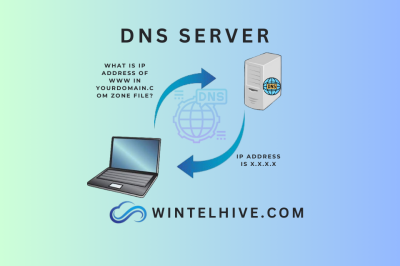
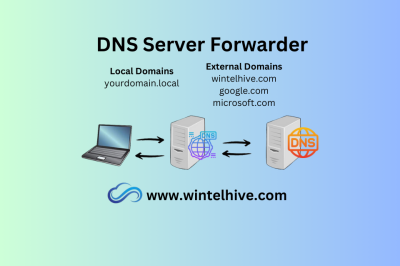
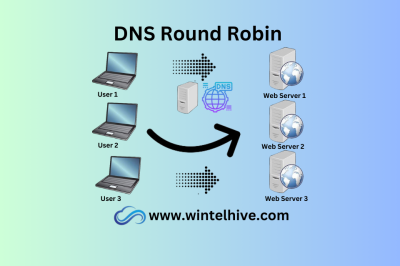

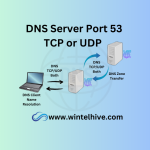
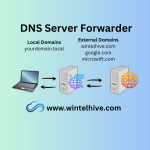
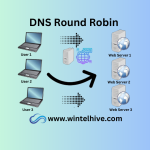

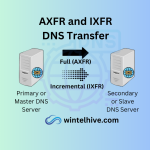
Leave a Reply